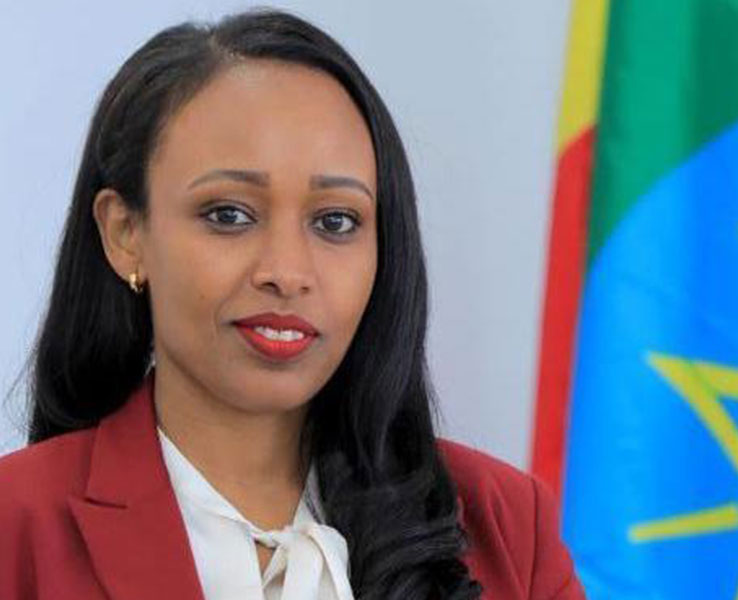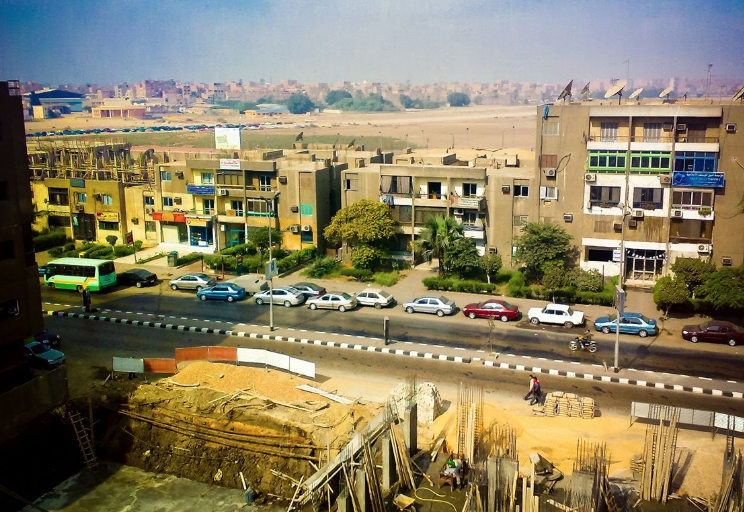
Fortune News | Jun 07,2025
Aug 30 , 2025
By Fitsum Assefa (PhD)
In November this year, at COP30 in Brazil, the next chapter of global climate action will be shaped. But for many on the African continent, the path forward runs through Addis Abeba, where the world’s youngest population and richest biodiversity are making the case for investment, not charity, in Africa’s green future.
Next month, heads of state and government, climate scientists, private-sector leaders, civil-society and youth representatives, and global development partners will convene in Addis Abeba, the seat of the African Union (AU), for the Second Africa Climate Summit (ACS2). It will not be a symbolic gathering but a declaration of intent by Africa, an opportunity to unleash a wave of high-return investment, and a potential turning point in how the world confronts the climate crisis.
Africa is on the frontline of a socially and economically corrosive global environmental catastrophe. Droughts and floods are disrupting agriculture and displacing millions of people across the continent. According to the African Development Bank (AfDB), climate change is reducing Africa's GDP growth by five percent to 15pc each year, losses that mean millions fewer jobs and less investment in critical infrastructure.
However, while Africa is often portrayed as a poster child for climate vulnerability, it is also a model of climate possibility, boasting vast renewable resources, rich biodiversity, rapidly growing economies, and a young, innovative population. However, Africa's green potential remains largely untapped. For example, though the continent possesses 60pc of the world's best solar resources, it currently accounts for only one percent of global installed solar capacity, and only three percent of global energy investment.
This represents a major missed opportunity, not least for investors. Whereas the industrialised countries are attempting to retrofit economies based on voracious fossil-fuel consumption, Africa can build resilient and sustainable economies from the ground up. This lowers the risk profile of green investment on the continent and increases long-term returns. A broadly shared commitment to green development by African governments creates favourable conditions to seize these opportunities.
Africa has proven its ability to turn bold vision into concrete progress that benefits people and the planet. Pipelines of bankable projects are already in place, ready to be scaled up.
Ethiopia has built a national grid powered almost entirely by renewable energy sources, especially hydropower. The Grand Ethiopian Renaissance Dam (GERD) has already reached 2,350MW in power-generation capacity, and will generate 5,150MW when all 13 turbines are operational. Its renewable generation is so effective that its energy exports are now powering homes and businesses in Djibouti, Kenya, Sudan, and Tanzania, increasing its revenues while deepening regional ties.
In The Gambia, the Jambur Solar Power Station (23 MW), a project backed by a 165 million dollars blended-finance package, which created over a thousand local jobs, delivers clean power to thousands of households. In South Africa, the Impofu Wind Complex (330MW) powers industrial decarbonization through innovative "wheeling" agreements that attract global capital. And in Kenya, solar-powered green-ammonia production is reducing agricultural emissions, lowering costs for farmers, and boosting food security.
The African Green Industrialisation Initiative (AGII) and the Flagship Report produced at ACS2 will show how African governments, private companies, and development-finance institutions can scale such transformative projects. And these examples are only the beginning. Africa's renewable-energy potential is measured not in megawatts, but in terawatts, a scale that can reshape the future of energy globally.
Beyond energy, investors can find bankable projects in areas like climate-smart agriculture, sustainable transport, and nature-based solutions.
Tapping Africa's vast green investment potential will require investors to abandon the outdated perception that Africa is a high-risk destination, a place for charity, not reaping returns. Africans are not asking to be rescued. The continent's long-term fundamentals – demographics, resources, and innovation – are among the strongest in the world, and green investments are well positioned to deliver measurable economic, environmental, and social returns for Africa and the world.
If Africa is empowered to advance green industrialisation, it will be able to make major contributions to global climate stability, food security, and sustainable economic growth. If Africa is left behind, climate change will continue to accelerate, supply-chain disruptions will proliferate, and global instability will intensify.
At this November's United Nations Climate Change Conference (COP30) in Belém, Brazil, the world will define the next phase of climate and development action. But one thing is already clear. The road to a stable climate and an equitable global economy runs through Africa. Rather than attempt to bypass it, and risk never reaching our shared destination, governments, investors, innovators, development partners, and all who believe in a greener future should arrive in Addis Abeba next month ready to deliver resources where they are needed most.
PUBLISHED ON
Aug 30,2025 [ VOL
26 , NO
1322]


Fortune News | Jun 07,2025

Viewpoints | Jul 20,2024

Commentaries | Sep 10,2022

Fortune News | Jul 13,2019

Commentaries | Jun 15,2019

Fortune News | Jan 26,2019

Commentaries | Mar 13,2021

Viewpoints | Jun 10,2023

Fortune News | Jun 08,2019

Radar | Feb 01,2020

Photo Gallery | 177118 Views | May 06,2019

Photo Gallery | 167330 Views | Apr 26,2019

Photo Gallery | 157944 Views | Oct 06,2021

My Opinion | 136960 Views | Aug 14,2021
Commentaries | Oct 25,2025

Dec 22 , 2024 . By TIZITA SHEWAFERAW
Charged with transforming colossal state-owned enterprises into modern and competitiv...

Aug 18 , 2024 . By AKSAH ITALO
Although predictable Yonas Zerihun's job in the ride-hailing service is not immune to...

Jul 28 , 2024 . By TIZITA SHEWAFERAW
Unhabitual, perhaps too many, Samuel Gebreyohannes, 38, used to occasionally enjoy a couple of beers at breakfast. However, he recently swit...

Jul 13 , 2024 . By AKSAH ITALO
Investors who rely on tractors, trucks, and field vehicles for commuting, transporting commodities, and f...

Oct 25 , 2025
The regulatory machinery is on overdrive. In only two years, no fewer than 35 new pro...

Oct 18 , 2025
The political establishment, notably the ruling party and its top brass, has become p...

Oct 11 , 2025
Ladislas Farago, a roving Associated Press (AP) correspondent, arrived in Ethiopia in...

Oct 4 , 2025
Eyob Tekalegn (PhD) had been in the Governor's chair for only weeks when, on Septembe...

Oct 25 , 2025 . By YITBAREK GETACHEW
Officials of the Addis Abeba's Education Bureau have embarked on an ambitious experim...

Oct 26 , 2025 . By YITBAREK GETACHEW
The federal government is making a landmark shift in its investment incentive regime...

Oct 26 , 2025 . By NAHOM AYELE
The National Bank of Ethiopia (NBE) is preparing to issue a directive that will funda...

Oct 26 , 2025 . By SURAFEL MULUGETA
A community of booksellers shadowing the Ethiopian National Theatre has been jolted b...